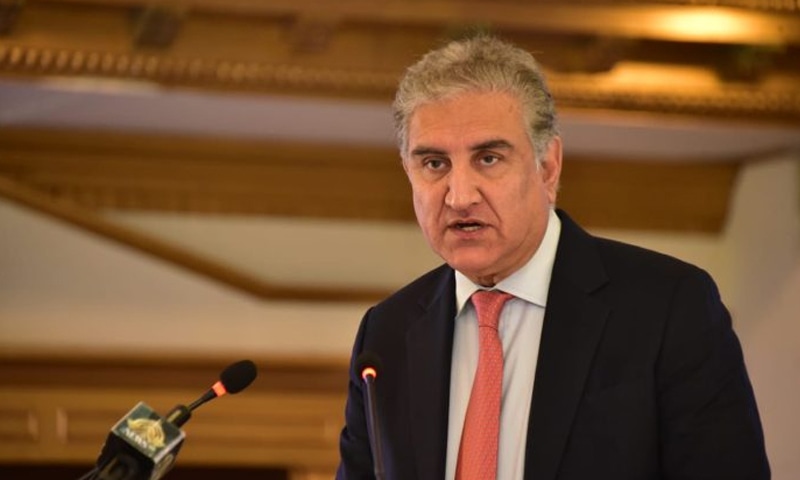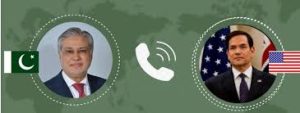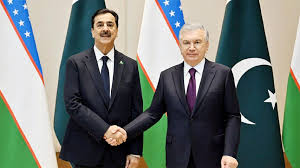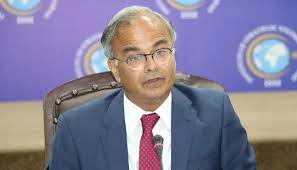Pakistan’s relationship with China “resilient” and “poised to grow further”: FM Qureshi

Islamabad: Foreign Minister Shah Mehmood Qureshi has said that Pakistan’s relationship with China was “resilient” and “poised to grow further.”
Speaking at the Margalla Dialogue Forum 2021 – Foreign Policy Challenges of Future in Changing Geopolitical Landscape, organized here by the Islamabad Policy Research Institute (IPRI), FM Qureshi discussed the future of foreign policy and the role geo-economics was playing.
“Pakistan’s relations with China are resilient and poised to grow further. The Belt and Road Initiative (BRI), of which the China-Pakistan Economic Corridor (CPEC) is the flagship project, will leverage economic geography and connectivity of the three contiguous continents – Asia, Europe and Africa – ushering in prosperity for all global citizens,” he added.
The Foreign Minister spoke at length on various issues concerning Pakistan’s foreign policy and diplomacy including the humanitarian situation in Afghanistan and bilateral relations with China.
“When we speak of the future of foreign policy and the role geo-economics is playing, we must speak about China,” he remarked adding Pakistan also values its ties with other countries.
The Foreign Minister stressed that positioning Pakistan as a geo-economic center with unparalleled regional connectivity had to come as a mindset, top down. “We have had to reset the existing geo political mindset and embrace the importance of Geo Economics,” he opined.
The Foreign Minister emphasized that as Pakistan was the fifth most populous nation, with 220 million people, some 64 % of its population was below the age of 30 and according to estimates by Forbes and UNDP, approximately 80 million were middle class. “We need to tap into this growing human capital and our abundant natural resources,” he contended.
The Foreign Minister mentioned that connecting the economy with the future of foreign policy brought him to a critical tool of modern diplomacy; the digital sphere. “Big Tech, by amassing and monopolizing data, is outgrowing capitalism as we know it, by redesigning supply chains, virtual reality and the way we think and live,” he maintained.
The Foreign Minister admitted that Covid had accelerated the digital diplomacy trajectory. “Diplomacy is no more singularly reliant on leadership to leadership telephone calls or state visits. Technology has never before played such a definitive role in relationships,” he mentioned.
The Foreign Minister said that bilateral, political consultations, multilateral conferences were all happening online. “Today, perception wars are won and lost on twitter. So what better place for diplomacy than online, where you use less resources to achieve even greater outcomes in shorter amounts of time,” he noted.
The Foreign Minister said that Pakistan valued its longstanding relations with the United States. He, however, added that looking towards the future, Pakistan did not want a transactional relationship with US. “We want multifaceted ties that are not susceptible to the vagaries of regional and international policies,” he underscored.
The Foreign Minister informed that in line with the vision of Prime Minister Imran Khan for a shift from geopolitics to geo-economics, Pakistan wanted a relationship with the US that was in sync with “our changed priority.”
The Foreign Minister observed that with Russia, Pakistan’s diplomatic outreach had not only led to rapprochement but opened doors for reinvigorated relations in the security and economic realms. “The Pak-Russia trajectory is contributing to stability in the region and we will continue to strengthen it,” he claimed.
On Afghanistan, the FM pointed out that there was a dire humanitarian crisis looming which has consequences not only for the people of Afghanistan but indeed us as neighbours, the region and beyond.
“On the 19th of December, Pakistan will host an extraordinary session of the Organization of the Islamic Cooperation (OIC) to mobilize support for providing adequate food, medicine and housing to millions of Afghans in dire distress,” he told the audience.
Pakistan, he underlined, continued to host over 4 million Afghan refugees. “We have advocated and worked for the establishment of an inclusive polity in Afghanistan, respecting the rights of all ethnic and religious minorities as well as of women,” he added.





